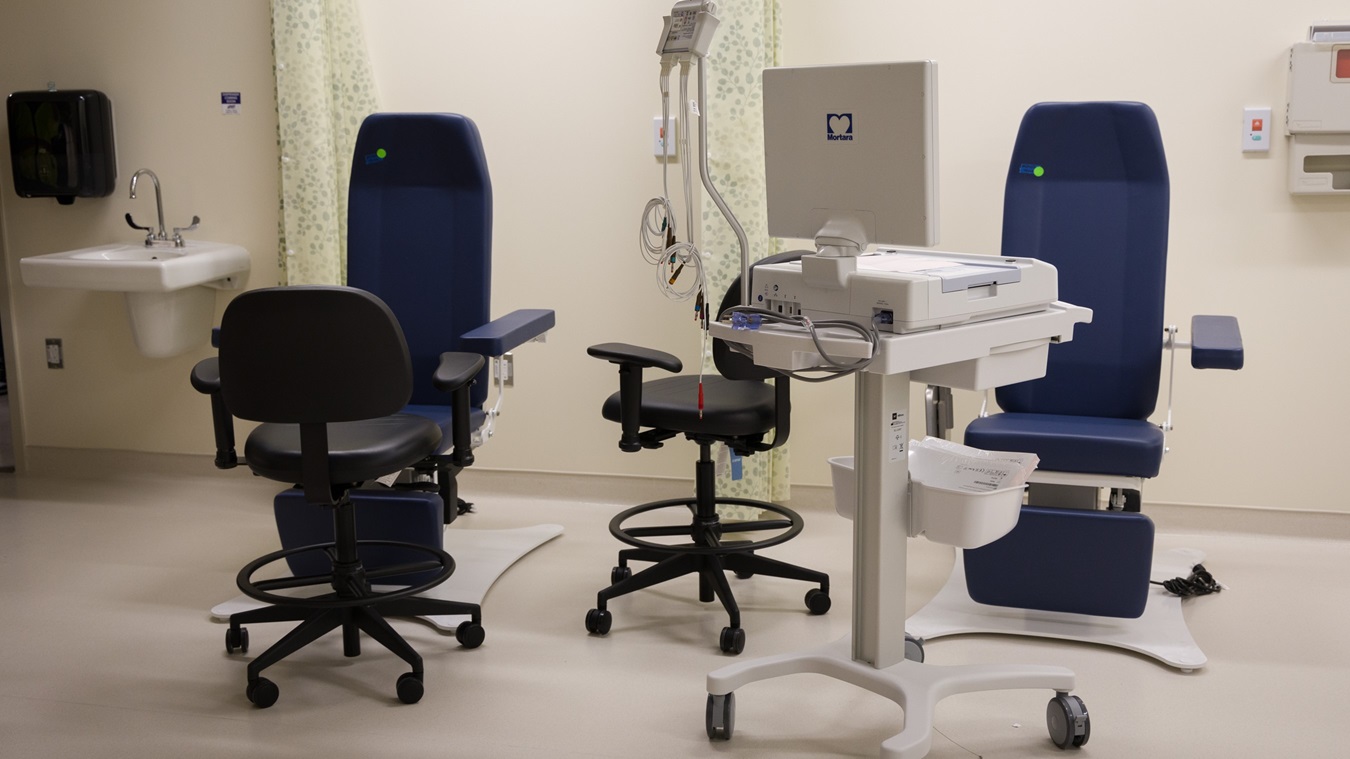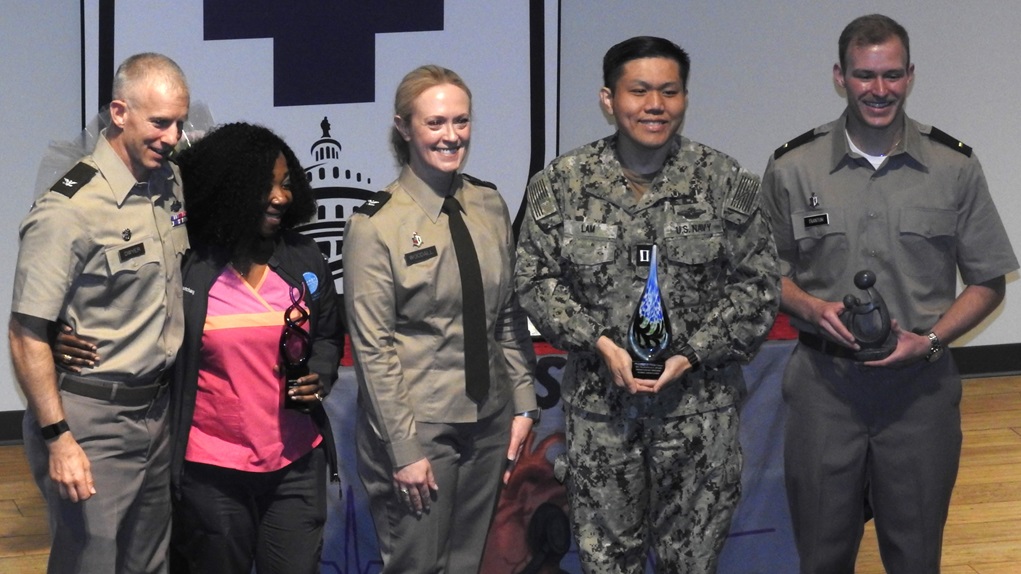July 23, 2025 | By Robert Hammer, OASDHA/Military Health System
U.S. Army Master Sgt. Jerry Millan lives life by two promises:
“I’m not done yet,” was his vow when Military Health System doctors gave him a lifechanging diagnosis—a rare cancer in his abdominal area, the “most aggressive cancer they've ever come across,” he said. It was 2019, and Millan was given six weeks to live.
The second, “I got you,” is his assurance to fellow service members he mentors that he’ll be there to support them and his fellow athletes as they prepare for the 2025 Department of Defense Warrior Games.
Millan’s cancer has been in remission for over five years, and he shares his story of survival to encourage and lift up others facing difficult odds.
A Sudden Pain, A Grim Diagnosis
Millan, a special operations forces soldier, was participating in pre-deployment training in the woods of Fort Polk, Louisiana, when he hit the ground and felt a sharp pain in his gut. He thought it was just a hernia. A medic agreed and ordered a scan. The scan confirmed an umbilical hernia, but the military radiologist saw more.
“I just had this pain in my navel. It wasn’t a typical pain from exercise or indigestion; rather, something unfamiliar” Millan recalled. “But thanks to the radiologist—they saw multiple masses inside my abdomen.”
He was immediately sent to the Murtha Cancer Center at Walter Reed National Military Medical Center, where specialists identified Burkitt’s Lymphoma, an aggressive growing type of cancer, according to the National Institutes of Health. He waited with his parents to find out the prognosis.
“When the doctor came in and said, ‘six weeks,’ my mom ran out the room, bawling her eyes out,” Millan said. “I'm just sitting there looking at like the floor, my dad's sitting at the edge of the bed, and I started saying to myself, ‘I'm not done yet.’”
“It was just a decision to live.”
MHS and NIH Partner to Save his Life
Because Burkitt’s Lymphoma is rare, Walter Reed oncologists quickly linked Millan with doctors and researchers at the NIH who study the disease. The partnership gave him access to an experimental, high-dose chemotherapy protocol for six cycles.
“From the day that they told me chemotherapy was my only option, I started the following Monday,” he said. “At the time, three doctors in network in the United States were trained on that type of cancer.”
Like the cancer, the treatment was aggressive.
“You’re given a massive dose of chemotherapy—I was on a 96-hour drip at first,” he said. “It was the harshest form of chemotherapy that has been developed. But you had to do it because the cancer, by that time, grew over 1000%. My gut was extremely distended.”
Besides the side effects of cancer treatments, he found the isolation to be an additional challenge. He was diagnosed just before the pandemic in 2020. Due to his severely compromised immune system and COVID-19, he was unable to be around people for the better part of a year. On top of that, the unit he trained so hard with deployed without him.
“My friends were deployed; I couldn't see my family. I couldn't have conversations face to face, it was: Wash your hands, wear your face shields, don’t touch each other,” he said.
His mental resilience was one of the key factors to his recovery. Millan said it was a “direct contribution to my surviving.”
Millan also connected with the U.S. Special Operations Command Warrior Care Program - Care Coalition. They gave his mother a place to stay during treatment, arranged flights, and later linked him to educational resources and a staff position to let him continue serving while he healed.
They made sure his mother could focus on him and not on logistics. “She didn’t have to worry about anything,” Millan said. “She could just focus on me.”
After his chemotherapy rounds, doctors declared him cancer-free.
Finding New Strength Through Sports
Millan looked for what was next and returned to serving—yet struggled to navigate what his new duty looked like while in recovery.
“I felt like they really had no use for me. They had people that were deployable and ready to go. And I can’t. That’s reality.”
Through his experience with WCP-CC, he decided to join the USSOCOM Warrior Care Program’s Military Adaptive Sports team. “The Military Adaptive Sports program provided me the opportunity to find a new purpose in life by helping others going through similar situations,” he said. “They helped me find a new community.”
He trained for powerlifting, rowing, sitting volleyball, track and field, and precision air sports. At his first DOD Warrior Games in 2022, he balanced competition with duty, commuting between his events in Orlando and his assignment at MacDill Air Force Base in Tampa. The camaraderie hooked him. “Once I got to participate and train with the other athletes that were there, I learned about their stories and the things they’re going through,” he said. “It's like, wow, you know, there are other people out there in the military community … that all have their struggles, and they are facing their adversity.”
“Then I ended up finding this new community,” Millan added, “I didn’t realize how badly I needed that.”
He was invited to participate in the 2025 Invictus Games, where he took Gold in rowing. The togetherness, teamwork, and community inspired his second promise.
‘I Got You’
In the 2025 games, Millan will again wear Team SOCOM colors. He qualified for the “Ultimate Champion” category, a grueling slate of every individual event: powerlifting, cycling, swimming, archery, shooting, rowing, track and field, and volleyball. He uses his experience to help service members who are struggling, recruiting new athletes, visiting recovery units, and offering virtual coaching to anyone who needs it. He shares his message of recovery and support to uplift others.
“If you’re a teammate of mine, I got you,” he stresses. “I will come to you and walk you through the things that helped me. I’ll do this with you. I’ll tell them this is what I did that helped me. I didn't follow a guided path. I didn't have someone walking me through it. But if you're in my community … I got you.”
Health and Fitness Key to Recovery
As the WCP-CC East Region noncommissioned officer in charge, he is a liaison to U.S. Army Special Operations Command and visits the Soldier Recovery Unit twice a week. He demonstrates workouts, shares nutrition tips, and, most importantly, listens. “I learn about their stories and the stuff they're going through,” Millan said. “I say, ‘here are the things that helped me to get through what I was going through.’ Maybe what I've learned in my own journey that could possibly help.”
“I just embrace it, and they embrace. That helps amplify any type of recovery,” he added.
To continue to keep his own health in check, he trains. He believes movement builds mood and resilience. A chemotherapy-induced heart issue demands top fitness, so he lifts, rows, and runs often. “To build resilience, you have to build a routine,” he said. “Maybe you start with walking 20 minutes a day. Then it builds from there. Your body is meant to move.” For him, exercise helps his mental health. “My mood and my attitude are directly tied to how I feel.”
Millan maintains annual needed checkups through the care of his MHS team. “I get labs and then I have specialty care for my heart,” he said. “I'm able to use these specialty clinics to help with issues I'm having from chemotherapy right on base.”
Millan refuses to let cancer define him, but it does define his new outlook—living by a new mantra: “There’s more I want to do in life,” he said. “And I’m not done yet.”







